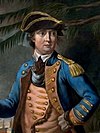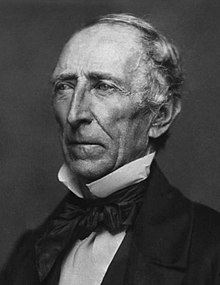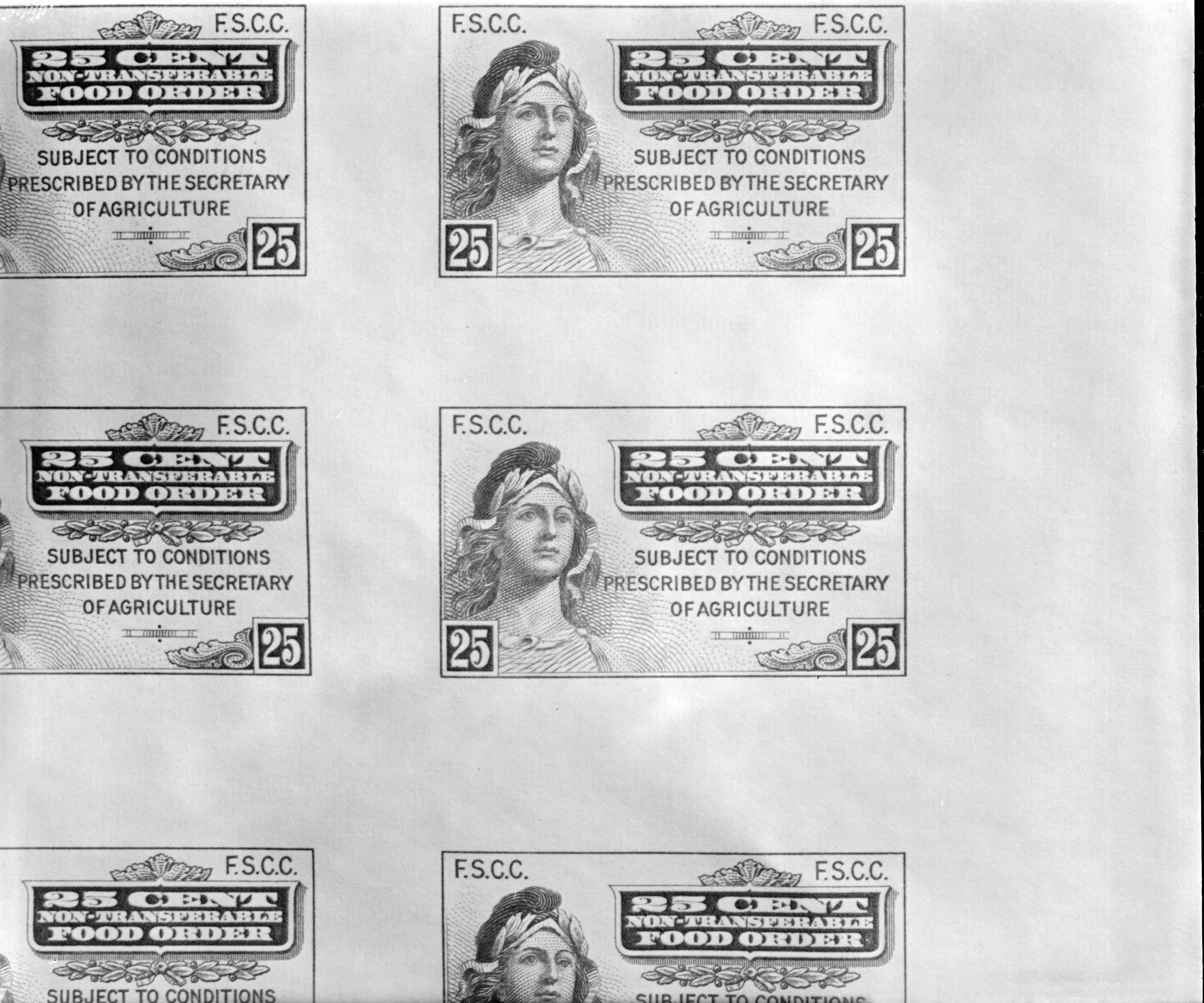September 11 is the 254th day of the year (255th in leap years) in the Gregorian calendar. There are 111 days remaining until the end of the year. It is usually the first day of the year in the Coptic calendar and Ethiopian calendar (in the period AD 1900 to AD 2099).
Holidays
- Christian feast days:
- Death Anniversary of Quaid-e-Azam Muhammad Ali Jinnah, a former holiday. (Pakistan)
- Emergency Number Day, proclaimed by President Reagan on August 26 in 1987. (United States communities, particularly the local emergency services)
- Enkutatash falls on this day if it is not a leap year. Celebrated on the first day of Mäskäräm. (Ethiopia, Rastafari)
- National Day of Catalonia (Catalonia)
- Nayrouz (Coptic Orthodox Church)
- Patriot Day (United States)
- Teachers’ Day (Argentina)
History

In 9 AD, Battle of the Teutoburg Forest ends, where the Roman Empire suffers the greatest defeat of its history and the Rhine being established as the border between the Empire and the so-called barbarians for the next four hundred years
In 1185, Isaac II Angelos kills Stephen Hagiochristophorites and then appeals to the people, resulting in the revolt that deposes Andronikos I Komnenos and places Isaac on the throne of the Byzantine Empire.
In 1226, The Roman Catholic practice of public adoration of the Blessed Sacrament outside of Mass spreads from monasteries to parishes.
In 1297, Battle of Stirling Bridge: Scots jointly-led by William Wallace and Andrew Moray defeat the English. The Battle of Stirling Bridge was a battle of the First War of Scottish Independence. On 11 September 1297, the forces of Andrew Moray and William Wallace defeated the combined English forces of John de Warenne, 6th Earl of Surrey, and Hugh de Cressingham near Stirling, on the River Forth. //www.youtube.com/embed/qzLTY14WI20In 1390,Lithuanian Civil War (1389–92): The Teutonic Knights begin a five-week siege of Vilnius.
In 1541, Santiago, Chile, is destroyed by indigenous warriors, led by Michimalonco.
In 1565, Ottoman forces retreat from Malta ending the Great Siege of Malta.
In 1609, Expulsion order announced against the Moriscos of Valencia; beginning of the expulsion of all Spain’s Moriscos.
In 1609, Henry Hudson discovers Manhattan Island and the indigenous people living there.
In 1649, Siege of Drogheda ends: Oliver Cromwell‘s English Parliamentarian troops take the town and execute its garrison.
In 1672, Colonial American clergyman Solomon Stoddard, 29, was ordained pastor of the Congregational church in Northampton, Mass. He remained at this pulpit for the next 57 years.
In 1697, Imperial troops under Eugene of Savoy defeat the Turks at the Battle of Zenta.
In 1708, Charles XII of Sweden stops his march to conquer Moscow outside Smolensk, marking the turning point in the Great Northern War. The army is defeated nine months later in the Battle of Poltava, and the Swedish Empire ceases to be a major power.
In 1709, Battle of Malplaquet: Great Britain, Netherlands and Austria fight against France. John Churchill, Duke of Marlborough, wins the bloodiest battle of the 18th century at great cost, against the French at Malplaquet.
In 1714, Siege of Barcelona: Barcelona, capital city of Catalonia, surrenders to Spanish and French Bourbon armies in the War of the Spanish Succession.
In 1758, Battle of Saint Cast: France repels British invasion during the Seven Years’ War.
In 1773, Benjamin Franklin writes “There never was a good war or bad peace.”

In 1775, Benedict Arnold’s expedition to Quebec leaves Cambridge, Massachusetts. Benedict Arnold led an expedition early in the American Revolutionary War from Cambridge, Massachusetts, through the wilderness of what is now Maine to the gates of Quebec City, setting out on September 11, 1775. Colonel Arnold‘s force of 1,100 Continental Army troops was part of a two-pronged invasion of the British Province of Quebec, along with Richard Montgomery‘s expedition pushing north from Lake Champlain. By the time Arnold reached the French settlements above the Saint Lawrence River in November, his force was reduced to 600 starving men. They had traveled about 350 miles (560 km) through poorly charted wilderness, twice the distance they had expected to cover. Assisted by the local French-speaking Canadiens, Arnold’s troops crossed the Saint Lawrence on November 13 and 14 and attempted to put Quebec City under siege. Failing in this, they withdrew until Montgomery arrived to lead an unsuccessful attack on the city. Arnold received a promotion to brigadier general. His route through northern Maine has been listed on the National Register of Historic Places as the Arnold Trail to Quebec.
In 1776, British–American peace conference on Staten Island fails to stop nascent American Revolutionary War.
In 1777, American Revolutionary War: Battle of Brandywine: The British celebrate a major victory in Chester County, Pennsylvania. The forces under General George Washington suffered defeat at the hands of the British in the Battle of Brandywine near Wilmington, Delaware. The Stars and Stripes flag was officially carried for the first time in that battle.
In 1786, The beginning of the Annapolis Convention.
In 1789, Alexander Hamilton is appointed the first United States Secretary of the Treasury.
In 1792, The Hope Diamond is stolen along with other French crown jewels when six men break into the house where they are stored.
In 1802, France annexes the Kingdom of Piedmont.
In 1803, Battle of Delhi, during the Second Anglo-Maratha War, between British troops under General Lake, and Marathas of Scindia‘s army under General Louis Bourquin.
In 1813, War of 1812: British troops arrive in Mount Vernon and prepare to march to and invade Washington, D.C..
In 1814, War of 1812: The climax of the Battle of Plattsburgh, a major United States victory in the war. The American fleet scored a decisive victory over the British in the Battle of Lake Champlain.
In 1826, Captain William Morgan is arrested in Batavia, New York for debt. This sets into motion the events that lead to his mysterious disappearance.
In 1829, Surrender of the expedition led by Isidro Barradas at Tampico, sent by the Spanish crown in order to retake Mexico. This was the consummation of Mexico’s campaign for independence.
In 1830, Anti-Masonic Party convention; one of the first American political party conventions.

In 1841, All members of President John Tyler‘s Cabinet resigned, except Secretary of State Daniel Webster, in protest of Tyler’s veto of a banking bill. The members of the cabinet entered Tyler’s office one by one and resigned—an orchestration by Clay to force Tyler’s resignation and place his own lieutenant, Senate President pro tempore Samuel L. Southard, in the White House. The only exception was Webster, who remained to finalize what became the 1842 Webster–Ashburton Treaty, and to demonstrate his independence from Clay. When told by Webster that he was willing to stay, Tyler is reported to have said, “Give me your hand on that, and now I will say to you that Henry Clay is a doomed man.” On September 13, when the president did not resign or give in, the Whigs in Congress expelled Tyler from the party. Tyler was lambasted by Whig newspapers and received hundreds of letters threatening his assassination. Whigs in Congress were so angry with Tyler that they refused to allocate funds to fix the White House, which had fallen into disrepair.
In 1847, Stephen Foster‘s song “Oh! Susanna” is first performed at a saloon in Pittsburgh.
In 1851, Christiana Resistance: Escaped slaves stand against their former owner in armed resistance in Christiana, Pennsylvania, creating a rallying cry for the abolitionist movement.
In 1852, The State of Buenos Aires secedes from the Argentine Federal government, rejoining on September 17, 1861. Several places are named Once de Septiembre after this event.
In 1857, The Mountain Meadows massacre: Mormon settlers and Paiutes massacre 120 pioneers at Mountain Meadows, Utah.
In 1861, President Lincoln revokes Gen. John C. Fremont’s unauthorized military proclamation of emancipation in Missouri. Later, the president relieves Gen. Fremont of his command and replaces him with Gen. David Hunter.
In 1875, “Professor Tigwissel’s Burglar Alarm” appeared in the New York “Daily Graphics” newspaper this day. The 17 successive pictures that filled a full page made up the first comic strip ever published in a newspaper.
In 1883, The postal mail chute was patented by James G. Cutler of Rochester, New York. The device was first used in the Elwood Building.
In 1889, Start of the Sherlock Holmes adventure “The Crooked Man” (BG).
In 1893, Parliament of the World’s Religions opens in Chicago, where Swami Vivekananda delivers his speech on fanaticism, tolerance and the truth inherent in all religions.
In 1897, After months of pursuit, generals of Menelik II of Ethiopia capture Gaki Sherocho, the last king of Kaffa, bringing an end to that ancient kingdom.
In 1897, a strike by coal miners in Pennsylvania, Ohio and West Virginia ended, with the miners winning an eight-hour work day. (The day before, about 20 miners were killed when sheriff’s deputies opened fire on them in Pennsylvania.)
In 1903, The first race at the Milwaukee Mile in West Allis, Wisconsin is held. It is the oldest major speedway in the world.
In 1910, the first commercially successful electric bus line opened in Hollywood.
In 1913, Bear Bryant, American football player and coach was born. (d. 1983)
In 1914, Australia invades New Britain, defeating a German contingent at the Battle of Bita Paka.
In 1916, The Quebec Bridge‘s central span collapses, killing 11 men. The bridge previously collapsed completely on August 29, 1907.
In 1919, U.S. Marines invade Honduras.
In 1921, Nahalal, the first moshav in Palestine, is settled as part of a Zionist plan to colonize Palestine and creating a Jewish state, later to be Israel.
In 1922, The Treaty of Kars is ratified in Yerevan, Armenia.
In 1922, One of the Herald Sun of Melbourne, Australia’s predecessor papers The Sun News-Pictorial is founded.
In 1924, Tom Landry, American football player and coach was born this day.(d. 2000)
In 1926, Spain leaves League of Nation due to Germany joining.
In 1931, Salvatore Maranzano is murdered by Lucky Luciano‘s hitmen.
In 1932, Franciszek Żwirko and Stanisław Wigura, Polish Challenge 1932 winners, are killed when their RWD 6 airplane crashes during a storm.
In 1936, President Franklin D. Roosevelt dedicated Boulder Dam, now known as Hoover Dam, by pressing a key in Washington to signal the startup of the dam’s first hydroelectric generator in Nevada.
In 1939, World War II: Canada declares war on Germany, the country’s first independent declaration of war
In 1940, George Stibitz performs the first remote operation of a computer.
In 1941, Ground is broken for the construction of The Pentagon.
In 1941, Charles Lindbergh’s Des Moines Speech accusing the British, Jews and the Roosevelt administration of pressing for war with Germany. In the speech that sparked charges of anti-semitism, aviation hero Charles A. Lindbergh said in a speech that “the British, the Jewish and the Roosevelt administration” were trying to draw the U.S. into World War II, and that the Jewish groups should oppose the prospect of war instead of “agitating” for it.
In 1943, World War II: German troops occupy Corsica and Kosovo–Metohija.
In 1943 – World War II: Start of the liquidation of the Ghettos in Minsk and Lida by the Nazis.
In 1944, World War II: The first Allied troops of the U.S. Army cross the western border of Germany.
In 1944, President Roosevelt and British Prime Minister Winston Churchill met in Canada at the second Quebec Conference.
In 1944 – World War II: RAF bombing raid on Darmstadt and the following firestorm kill 11,500.
In 1944, President Roosevelt and British Prime Minister Winston Churchill met in Canada at the second Quebec Conference.
In 1945, World War II: Australian 9th Division forces liberate the Japanese-run Batu Lintang camp, a POW and civilian internment camp on the island of Borneo.
In 1954, Hurricane Edna hits New England as a Category 3 hurricane, causing significant damage and 29 deaths.

In 1959, A bill is passed by Congress authorizing food stamps in a program to distribute surplus food to impoverished Americans.
In 1961, Hurricane Carla strikes the Texas coast as a Category 4 hurricane, the second strongest storm ever to hit the state.
In 1965, Indo-Pakistani War: The Indian Army captures the town of Burki, just southeast of Lahore.
In 1967, the comic strip “Redeye” debut.
In 1968, Air France Flight 1611 crashes off Nice, France, killing 89 passengers and six crew.
In 1968 – The International Association of Classification Societies (IACS) was found.
In 1970, The Dawson’s Field hijackers release 88 of their hostages. The remaining hostages, mostly Jews and Israeli citizens, are held until September 25.
In 1971, The Egyptian Constitution becomes official.
In 1972, The San Francisco Bay Area Rapid Transit system begins passenger service.
In 1973, A coup in Chile headed by General Augusto Pinochet topples the democratically elected president Salvador Allende. Pinochet exercises dictatorial power until ousted in a referendum in 1988, staying in power until 1990.
In 1973, Chilean President Salvador Allende (ah-YEN’-day) died in a violent military coup that is widely believed to have been linked to the CIA.
In 1974, Eastern Air Lines Flight 212 crashes in Charlotte, North Carolina, killing 69 passengers and two crew.
In 1975, A gay rights ordinance is shot down by the New York City Council.
In 1975, President Ford began wearing a bullet-proof vest to campaign in his first public appearance since the assassination attempt on his life.
In 1976, A group of Croatian nationalists plant a bomb in a coin locker at Grand Central Terminal. After stating political demands, they reveal the location and provided instructions for disarming the bomb. The disarming operation are not executed properly and the bomb explodes, killing one NYPD bomb squad specialist.
In 1978, Janet Parker is the last person to die of smallpox, in a laboratory-associated outbreak.
In 1978, Georgi Markov, a Bulgarian defector, died at a British hospital four days after being stabbed by a man wielding a poisoned umbrella tip.
In 1980, Voters approve a new Constitution of Chile, later amended after the departure of president Pinochet.
In 1981, Interior Secretary James Watt announces major cutbacks in the EPA resources.
In 1982, The international forces that were guaranteeing the safety of Palestinian refugees following Israel‘s 1982 Invasion of Lebanon leave Beirut. Five days later, several thousand refugees are massacred in the Sabra and Shatila refugee camps.
In 1985, Pete Rose breaks Ty Cobb‘s baseball record for most career hits with his 4,192nd hit.
In 1986, The Dow Jones Industrial Average suffered biggest one-day decline ever/plummeting 86.61 points to 1,792.89. 237.57 million shares traded. It was the busiest day ever (to that day) for investors, brokers and traders on Wall Street as the big board tumbled.
In 1988, The St. Jean Bosco massacre takes place in Port-au-Prince, Haiti.
In 1989, Hungary announces that the East German refugees who had been housed in temporary camps were free to leave for West Germany.
In 1991, In the Middle East, hopes grew for the release of Western hostages in Lebanon after Israel freed 51 prisoners.
In 1992, Hurricane Iniki, one of the most damaging hurricanes in United States history, devastates the Hawaiian islands of Kauai and Oahu.

In 1994, Jessica Tandy, English-American actress (b. 1909) dies at home on 11 September 1994, in Easton, Connecticut, at age 85. In 1990, she was diagnosed with ovarian cancer. She was an English stage and film actress. She appeared in over 100 stage productions and had more than 60 roles in film and TV. She became the oldest actress to receive the Academy Award for Best Actress for her role in Driving Miss Daisy (1989), for which she also won a BAFTA and a Golden Globe, and was nominated for an Academy Award for Best Supporting Actress for Fried Green Tomatoes (1991). At the height of her success, she was named as one of People’s “50 Most Beautiful People”.
In 1995, Eastern Tennessee begins using new area code 423.
In 1995, The prosecution in the O.J. Simpson murder trial in Los Angeles reluctantly began its rebuttal case, as ordered by Judge Lance Ito, after the defense refused to rest.
In 1997, NASA‘s Mars Global Surveyor reaches Mars.
In 1997 – After a nationwide referendum, Scotland votes to establish a devolved parliament within the United Kingdom.
In 1997 – Fourteen Estonian soldiers die in the Kurkse tragedy, drowning in the Baltic Sea.
In 1998, Opening ceremony for the 1998 Commonwealth Games in Kuala Lumpur, Malaysia. Malaysia is the first Asian country to host the games.
In 1998, Russia’s fractious parliament came together and confirmed compromise candidate Yevgeny Primakov as prime minister.
In 1998, Congress released Kenneth Starr’s voluminous report that offered graphic details of President Clinton’s alleged sexual misconduct and leveled accusations of perjury and obstruction of justice; the president’s attorneys quickly issued a point-by-point rebuttal.
In 2000, The GOP ad decries bureaucrats but Democrats see something more subtle: rats. In a Republican National Committee ad that has aired in several key states, the word “rats” appears on screen for a fleeting moment before the full word “bureaucrats” appears. Aides to Vice President Al Gore, the Democratic presidential candidate, made the point clear by giving a copy of a slowed-down version of the 30-second ad to The New York Times, which reported on it in Tuesday editions of the newspaper. Gore aides told the Times that a Democrat in Seattle had spotted the ad’s seemingly subliminal message and contacted county Democrats, who then alerted the Gore campaign. The ad touts Republican George W. Bush’s plan for adding prescription drugs to Medicare, arguing that seniors will have more control over their health care under Bush’s proposal.
In 2000, Melbourne hosts World Economic Forum where S11 protests also take place.
In 2001, Two hijacked aircraft crash into the World Trade Center in New York City, while a third smashes into The Pentagon in Arlington County, Virginia, and a fourth into a field near Shanksville, Pennsylvania, in a series of coordinated suicide attacks by 19 members of al-Qaeda. In total 2,996 people are killed.
Some of the Casualties:
- David Angell, American television producer (b. 1946)
- Mohamed Atta, Egyptian hijacker–pilot of American Airlines Flight 11 (b. 1968)
- Garnet Bailey, Canadian ice hockey player (b. 1948)
- Todd Beamer, American passenger on United Airlines Flight 93 (b. 1968)
- Berry Berenson, American photographer, actress, and model (b. 1948)
- Carolyn Beug, American director and producer (b. 1952)
- Bill Biggart, American photographer and journalist (b. 1947)
- Mark Bingham, American public relations executive (b. 1970)
- Ronald Paul Bucca, American fire marshal (b. 1954)
- Charles Burlingame, American pilot (b. 1949)
- Tom Burnett, American businessman (b. 1963)
- William M. Feehan, American firefighter (b. 1929)
- Wilson Flagg, American navy admiral (b. 1938)
- Peter J. Ganci, Jr., American firefighter (b. 1946)
- Ahmed al-Ghamdi, Saudi hijacker of United Airlines Flight 175 (b. 1979)
- Hamza al-Ghamdi, Saudi hijacker of United Airlines Flight 175 (b. 1980)
- Hani Hanjour, Saudi hijacker–pilot of American Airlines Flight 77 (b. 1972)
- Nawaf al-Hazmi, Saudi hijacker of American Airlines Flight 77 (b. 1976)
- Salem al-Hazmi, Saudi hijacker of American Airlines Flight 77 (b. 1981)
- Ziad Jarrah, Lebanese hijacker–pilot of United Airlines Flight 93 (b. 1975)
- Mychal Judge, American priest (b. 1933)
- Daniel M. Lewin, American mathematician and businessman, co-founded Akamai Technologies (b. 1970)
- Timothy Maude, American military officer (b. 1947)
- Eamon McEneaney, American lacrosse player (b. 1954)
- Khalid al-Mihdhar, Saudi hijacker of American Airlines Flight 77 (b. 1975)
- Majed Moqed, Saudi hijacker of American Airlines Flight 77 (b. 1977)
- John P. O’Neill, American Counter-terrorism expert and FBI agent (b. 1952)
- John Ogonowski, American pilot (b. 1951)
- Barbara Olson, American political commentator (b. 1955)
- Abdulaziz al-Omari, Saudi hijacker of American Airlines Flight 11 (b. 1979)
- Betty Ong, American flight attendant (b. 1956)
- Rick Rescorla, American army officer (b. 1939)
- Marwan al-Shehhi, Emirati hijacker–pilot of United Airlines Flight 175 (b. 1978)
- Wail al-Shehri, Saudi hijacker of American Airlines Flight 11 (b. 1973)
- Madeline Amy Sweeney, American flight attendant (b. 1966)
In 2007, Russia tests the largest conventional weapon ever, the Father of All Bombs.
In 2012, A total of 315 people are killed in two garment factory fires in Pakistan.
In 2012, The U.S. embassy in Benghazi, Libya is attacked, resulting in four deaths. On September 11, 2012, at 9:40pm local time, members of Ansar al-Sharia attacked the American diplomatic compound in Benghazi resulting in the deaths of both United States Ambassador to Libya J. Christopher Stevens and U.S. Foreign Service Information Management Officer Sean Smith. At around 4:00 a.m. on September 12, the group launched a mortar attack against a CIA annex approximately one mile (1.6 km) away, killing two CIA contractors Tyrone S. Woods and Glen Doherty and wounding ten others. Initial analysis by the CIA, repeated by top government officials, indicated that the attack spontaneously arose from a protest. Subsequent investigations showed that the attack was premeditated.
In 2013, A 400 km long human chain called Catalan Way is organized by the Assemblea Nacional Catalana for the independence of Catalonia
In 2015, A crane collapses onto the Masjid al-Haram mosque in Saudi Arabia, killing 111 people and injuring 394 others.

